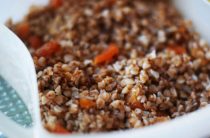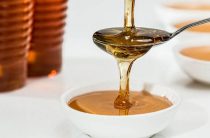Few people know that among all types of allergic reactions, there is an allergy to tea. Yes, this phenomenon is gaining momentum every year, worries more and more people. It would seem that tea is a fragrant drink that will always warm us in the cold season, we do not suspect that it can be an allergen. Intolerance to this drink can disturb a person at any age. The main thing when the first suspicious signs appear is to consult a doctor in time, undergo an examination, and find out specific risk factors.
Allergy to tea: causes
The causes of this disease can be divided into 2 groups. The first group is general causes, the second is a specific type of tea leaves. Among the main risk factors are:
- A fungus that grows in tea leaves if stored in the wrong conditions or longer than the prescribed time.
- The presence of a specific protein F222 in the tea leaf.
- Weakening of immunity due to a long course of antibiotic therapy or against the background of prolonged illness.
It is important to know that tea allergy can overtake infants during the first month of their life. Substances that provoke allergies penetrate the baby's body with breast milk. Therefore, lactating women need to be careful to refrain from drinking tea during this period.
Black tea
Strong black tea is very fond of men, so they cannot deny themselves this invigorating drink. Even if they have an allergy, it is difficult for them not to drink it. Risk factors that provoke the development of the disease can be all kinds of additives to tea leaves, as well as directly black tea leaves. Most allergists come to the conclusion that allergy symptoms are provoked with the help of synthetic dyes, various flavors that are added to tea to improve, enhance its taste, and give it a more beautiful color. It is worth noting that even additives in the form of pieces of berries and fruits can cause allergies.
Green tea
Since ancient times, green tea has been a drink that treats many diseases and has a tonic effect. It should be noted that green tea contains catechins, that is, substances that prevent the development of any type of allergy. Therefore, it cannot be said for sure that the brewing of this particular tea is the main cause of allergy symptoms.
In fact, the development of an allergic reaction to this type of tea is possible. Its main provocateurs include various flavors, additives used to improve taste. Therefore, before drinking this drink, beloved by many, it is recommended to purchase high-quality tea that does not contain any additives or other harmful substances.
Allergy to herbal tea
If after a cup of ordinary tea without flavorings, any other additives, there are no negative symptoms indicating an allergy, and after drinking herbal tea, negative signs are observed, the cause of the disease is in principle understandable. The provocateurs of the disease are herbs, which are usually added to tea leaves. Herbal teas can be made up of many ingredients. In order to identify a specific allergen, you should choose a tea leaves consisting of only 2-3 plants, follow the reaction of the body. Quite often, intolerance to herbal tea is observed in people who have been diagnosed with "Seasonal hay fever".
tea allergy symptoms
An allergic reaction to tea can be accompanied by a wide variety of symptoms. For this reason, it is quite difficult to determine the main risk factor that depresses the immune system and worsens overall well-being. Most often, patients complain of the occurrence of blisters, rashes, spots on the skin, their itching. Also, usually people with allergies notice such unpleasant symptoms as coughing, itching in the throat, in the nose, tearing, diarrhea, vomiting, abdominal cramps, and nausea. Severe stages of allergies can even be accompanied by asthma attacks.
A person prone to an allergy to tea brewing can experience both several (for example, about 2) symptoms, and their full-fledged complex, which negatively affects the digestive system, skin, and respiratory organs. Allergy to tea can occur immediately, that is, immediately after drinking the drink, or after a few hours.
Symptoms in adults
The presence of an allergic reaction to tea in adults is manifested by almost the same signs as in the case of an allergy to any food. The occurrence of respiratory symptoms is usually observed due to the use of an herbal drink that has a pronounced aroma. Black tea contributes to the appearance of such signs of allergy as skin rashes, disruption of the digestive system. A great danger to the patient is swelling of the mucous membranes and skin. An asthma attack may occur against the background of swelling of the oropharynx. Most often, allergies to various teas develop slowly. But there are times when the disease progresses rapidly, can lead to anaphylactic shock.
Signs of an allergy to tea in an infant
An allergic reaction to this product appears as a result of the use of this drink by mommy. When a little baby has a rash, parents do not even think that a product such as tea can serve as the cause of negative symptoms. At the time of breastfeeding, it is best to replace tea with compote, milk, and another healthy drink. Symptoms of a tea allergy in babies are as follows:
- An allergic rash, itching of the skin, which contributes to an irritable, capricious state. The rash usually appears on the face, hands, gradually spreads throughout the body.
- Colic, bloating, foamy stools.
Allergies in older children
In most cases, tea, which has herbs, additives, and various flavor enhancers, becomes the provocateur of the disease.
The main signs of the disease include acne on the skin, blisters, sore throat, rhinitis, conjunctivitis, cough, weakness, abdominal pain, headache, general malaise. The child becomes more irritable, aggressive against the background of the disease. In the absence of timely correct treatment, skin lesions gradually turn into dermatitis, which is very difficult to cure in the future.
Allergy to tea: treatment
The slightest signs, similar to allergic manifestations, should be the reason for going to the hospital, undergoing a diagnosis prescribed by a doctor. Special tests that are performed if an allergy is suspected, allow you to identify specific allergens that negatively affect a person. To cure the disease, it is necessary, first of all, to refuse contact with the allergen, that is, to stop using it. Also, the doctor may prescribe anti-allergic drugs to the patient. For example, Claritin, Zirtek, Fenistil, Suprastin. They perfectly fight with unpleasant symptoms, improve overall well-being.
In order to eliminate the signs of allergy on the skin, special ointments are prescribed that have an antihistamine, anti-inflammatory effect. To remove allergens from the body, you should consume a large amount of purified water during the day. It is best to drink about 1.5-2 liters. In the presence of negative symptoms from the digestive system, enterosorbents are used. If an allergy to tea is accompanied by perspiration, itching in the throat, it is recommended to rinse your mouth with purified water.
Recommendations
To get rid of allergies, some people will simply need to use a different brand of tea leaves. It is better to buy tea leaves without additives, flavorings. Be sure to look at the expiration dates, buy fresh tea. It is recommended to avoid tea bags, as they usually contain unpalatable, harmful tea dust. Only a doctor can choose an individual effective therapy. Therefore, you need to contact him, follow all the recommendations, and not self-medicate.










